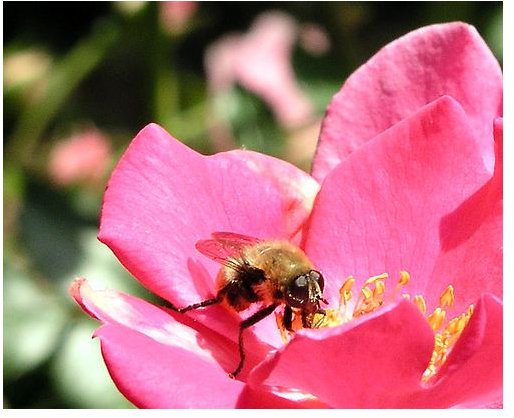Advantages of Backyard Beekeeping
How They Contribute
Honey bees are responsible for one-third of all foods. This statistic represents fruits, vegetables and dairy products, including ice cream.
Honey bees make their contributions to the world’s food supplies by pollination. Not only do bees provide the means for many foods, they also contribute to the fight against global climate change.
When bees pollinate, plants grow and the planet is cooler, because vegetation and greenhouse gases are reduced. Backyard beekeeping can help to repopulate the honey bee population and promote a healthy environment and chemical-free food. While it is not as simple a solution as it sounds, it may be worth the effort.
Honey Bees in Trouble
Now that you have an idea of how important honey bees are to us and the planet, consider this: bee populations are rapidly, and mysteriously, disappearing. The phenomenon is called Colony Collapse Disorder (CCD) and it has environmental consequences. CCD is a result of human environmental mismanagement. Many look to pesticides as a culprit in the mass abandonments and deaths of bee colonies.
Remember, pollination is the only way to produce flowering crops. Flowering crops provide food all along the food chain and are defenses against greenhouse gases. Without bees, crops won’t produce. Consequently, crops must be protected from chemicals that threaten bees, food and the damaged atmosphere.
Food and Wellness
The most direct green advantage of backyard beekeeping is that you have a natural means to produce honey, fruits and vegetables at your fingertips. Locally-grown honey is considered by some a natural remedy for allergies. When allergy sufferers consume honey from their immediate environment, they build immunity to the plants that cause allergies. Beekeeping preserves and promotes the production of nuts, fruits and vegetables.
Beekeeping Can Help Fight CCD
Consider coming to the aid of bees and reap the rewards of beekeeping. Between 2006 and 2009, one-third of the honey bee colonies in the United States died. The cost to food producers exceeds $15 billion. Beekeeping is, by nature, a green endeavor. Beekeepers are found across the country, in urban and rural areas. Keep bees without pesticides to promote the health of the environment, food production, and the bees.
Initiatives
Many concerned citizens are taking the need for bees seriously. A number of initiatives are underway to increase bee populations across the country. These actions are driven by the need for the products of pollination and for the life of the planet.
Some of the initiatives include The Bee Works, an educational and support endeavor to promote backyard beekeeping. Help the Honey Bees is Haagen-Dazs’ venture that educates and calls to action to help a troubling situation. The Natural Resources Defense Council (NRDC) provides information about the environmental causes and concerns about bees. The NRDC calls to action the preservation and increase of the bee population.
References and Resources
- Author unknown, “Vanishing Bees,” National Resources Defense Council, https://www.nrdc.org/wildlife/animals/bees.asp
- Neil, M.E.A., “Keep Bees, Naturally!”, Mother Earth News, https://www.motherearthnews.com/Modern-Homesteading/2008-02-01/Keep-Bees-Naturally.aspx
- Haagen-Dazs: Help the Honey Bees: https://www.helpthehoneybees.com/
Image credit: https://www.flickr.com/photos/[kapkap/](https://www.flickr.com/photos/kapkap/157290075/)157290075/
